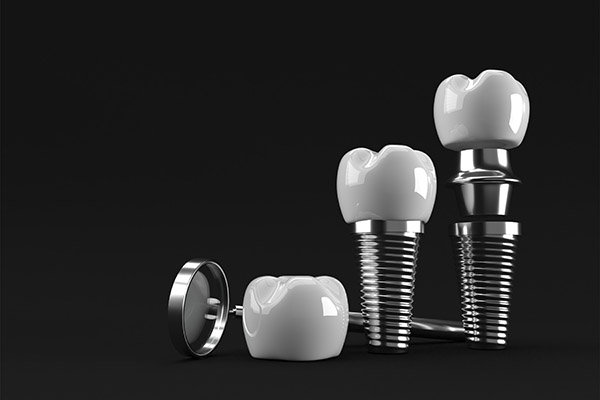 Getting dentures can be exciting because it means your missing teeth will no longer interfere with eating, speaking, and smiling. However, adjusting to a new set of dentures takes time. Knowing what to expect ahead of time makes this transition easier, and most people forget that they are even wearing dentures after a few weeks.
Getting dentures can be exciting because it means your missing teeth will no longer interfere with eating, speaking, and smiling. However, adjusting to a new set of dentures takes time. Knowing what to expect ahead of time makes this transition easier, and most people forget that they are even wearing dentures after a few weeks.
The challenges caused by new dentures
New dentures can feel especially obvious in the mouth during the first week or two. Patients having trouble adjusting to new dentures typically experience the following.
Facial tiredness and loose fit
Dentures take up extra space inside the oral cavity, and a person’s facial muscles will have to adapt around them. As the muscles learn their new roles, they often become fatigued. This is a normal part of wearing dentures and will fade once the muscles gain strength.
Additionally, these muscles are responsible for keeping the dentures properly in place. While they adapt to the new environment, the dentures will likely feel loose or like they are slipping around. This will also fade with time, but in the meantime, patients can use denture adhesive to keep their prosthetic in place.
Sore spots
Sore spots can develop as the mouth gets used to dentures (especially since they tend to slip and shift initially). These will disappear once the facial muscles adapt to their new ideal locations and functions.
Additionally, brand-new dentures occasionally have edges that need slight adjustment to fit properly into the mouth. If a patient believes that their dentures are contributing to sores, they can speak with a dentist to have them file down problematic areas.
Extra saliva
Since the mouth is still learning to accept the new device, it will temporarily increase saliva production to flush out what it perceives to be an unusual presence. Salivary production decreases once the body becomes accustomed to the dentures and can even be hastened by sucking on candy. The extra saliva produced upon consumption can trick the brain into associating the salivation with the candy, not the dentures.
A different speaking voice
Even though dentures replace a person’s real teeth by mimicking their natural dental arch, there will be many slight differences. From the shapes of the new teeth to the new ways that the facial muscles must move, many factors can alter how a person talks after putting in new dentures.
Fortunately, the brain is good at adapting to the presence of dentures. Patients should attempt to speak normally (understanding that they may not sound entirely natural), and the brain will gradually adjust the face and tongue to return to native sounds within just a few weeks. The more one talks, the faster the process, on average.
Feel confident in your dentures
Using dentures can open up a new chapter in your life, but it may also have minor inconveniences. Rest assured that these small changes are temporary, and the body will adjust quickly to the presence of dentures. In the meantime, you can do things like using adhesive and talking frequently to speed up the process. Contact our dentist if you are experiencing trouble with your new dentures.
Request an appointment or call McCarthy Dentistry at 740-546-5178 for an appointment in our Marietta office.
Recent Posts
False teeth, or dentures, are the traditional option for replacing any number of missing teeth for many reasons. They are easy to use and affordable and can also be custom-made for each patient. Discover the many benefits of custom dentures below.Since dentures replace missing teeth, they make it much easier to bite off and chew…
Dentures are durable and effective teeth replacements. However, even the most reliable dental devices may start to fit differently over time. This may be caused by changes in the jaw or something as simple as everyday wear and tear. Fortunately, we can reline dentures so that they feel like new again.Relining is a process in…
Considering dentures? Read on to learn more. For individuals dealing with tooth loss, dentures might offer a life-changing experience, both for their dental function and aesthetics. Millions of adults depend on dentures for their dental needs. According to a National Nutrition and Health Examination Survey, about 57% of Americans aged 65 to 74 and 51%…


